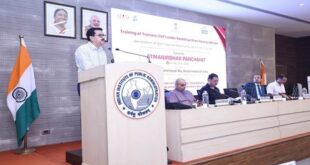- Recently, the Supreme Court (SC) dismissed a plea by the Election Commission of India (ECI) to restrain media from reporting oral observations of the judges.
- The SC ruled that the media has rights to report observations made during the course of hearings (Court Proceedings).
Important points:
- Real-time reportage of court proceedings, including the oral exchanges in courtrooms between judges and lawyers, is part of the right to freedom of speech.
- Under Article 19, Indian Constitution guarantees Freedom of Speech and Expression.
- With the advent of technology, reporting has proliferated through social media forums, which provides real-time updates to a much wider audience. This is an extension of the freedom of speech and expression that the media possesses.
- This constitutes a virtual extension of the open court.
- Except in cases of child sexual abuse and marital issues, the phenomenon of free press should extend to court proceedings.
Judicial Integrity:
- Right of the media to report and disseminate issues and events, including court proceedings that were a part of the public domain, augmented the integrity of the judiciary.
- Ensures that the judicial process is subject to public scrutiny which in turn is crucial to maintaining transparency and accountability and transparency in the functioning of democratic institutions is crucial to establish the public‘s faith in them.
- Ensures that judges act in accordance with law and with probity.
- Court proceedings are vital sources of public information about the activities of the legislature and the executive. An open court serves an educational purpose as well becoming a platform for citizens to know how the practical application of the law impacts upon their rights.
- There is a need for judges to exercise caution in off-the-cuff remarks in open court, which may be susceptible to misinterpretation. Language, both on the Bench and in judgments, must comport with judicial propriety.
- Language is an important instrument of a judicial process which is sensitive to constitutional values.
Election Commission of India
- It is an autonomous constitutional authority responsible for administering Union and State election processes in India.
- It was established in accordance with the constitution on 25th January 1950 (celebrated as national voters’ day). The secretariat of the commission is located in New Delhi.
- The body administers elections to the Lok Sabha, Rajya Sabha, and State Legislative Assemblies in India, and the offices of the President and Vice President in the country.
- It is not concerned with the elections to panchayats and municipalities in the states. For this, the Constitution of India provides for a separate State Election Commission.
- Part XV (Article 324-329) of the Indian Constitution deals with elections, and establishes a commission for these matters.
SOURCE: THE HINDU , THE ECONOMIC TIMES ,MINT
 Chinmaya IAS Academy – Current Affairs Chinmaya IAS Academy – Current Affairs
Chinmaya IAS Academy – Current Affairs Chinmaya IAS Academy – Current Affairs



